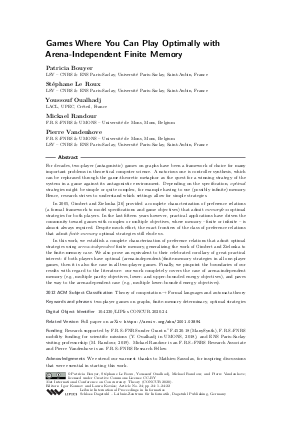LIPIcs.CONCUR.2020.24.pdf
- Filesize: 0.51 MB
- 22 pages

 Creative Commons Attribution 3.0 Unported license
Creative Commons Attribution 3.0 Unported license






Feedback for Dagstuhl Publishing